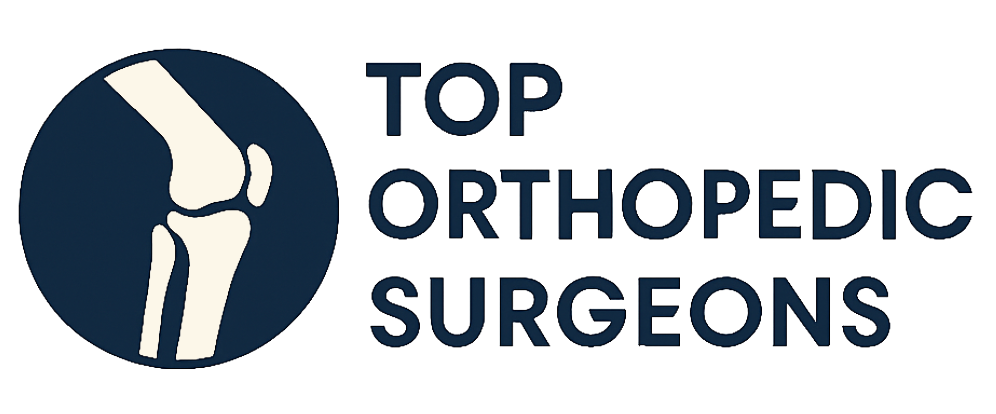Finding the right doctor is a crucial step in maintaining your health and well-being. Whether you’re seeking a primary care physician for routine check-ups or a specialist to address a specific health concern, the process can feel overwhelming. This guide aims to provide you with the information and tools necessary to confidently navigate the healthcare system and make informed decisions about your medical care.
Understanding the Different Types of Doctors
The medical field encompasses a wide array of specialties, each focusing on particular aspects of health. Understanding the different types of doctors is essential for identifying the right professional to address your specific needs.
Primary Care Physicians (PCPs)
Primary care physicians are often the first point of contact for individuals seeking medical care. They provide comprehensive and continuous healthcare services, focusing on preventive care, health maintenance, and the diagnosis and treatment of common illnesses. PCPs can include:
- Family Physicians: Provide care for patients of all ages, from infants to seniors.
- Internal Medicine Physicians: Focus on the diagnosis and treatment of diseases affecting adults.
- Pediatricians: Specialize in the care of infants, children, and adolescents.
- Geriatricians: Focus on the healthcare needs of older adults.
Specialists
Specialists are doctors who have undergone additional training in a specific area of medicine. They possess in-depth knowledge and expertise in their respective fields, allowing them to diagnose and treat complex medical conditions. Some common types of specialists include:
- Cardiologists: Treat diseases of the heart and blood vessels.
- Dermatologists: Diagnose and treat conditions affecting the skin, hair, and nails.
- Endocrinologists: Manage hormonal disorders, such as diabetes and thyroid disease.
- Gastroenterologists: Diagnose and treat diseases of the digestive system.
- Neurologists: Treat disorders of the brain, spinal cord, and nerves.
- Oncologists: Specialize in the diagnosis and treatment of cancer.
- Orthopedic Surgeons: Focus on the diagnosis and treatment of musculoskeletal conditions, including bone and joint injuries.
- Ophthalmologists: Provide medical and surgical care for eye conditions.
- Otolaryngologists (ENTs): Treat disorders of the ear, nose, and throat.
- Psychiatrists: Diagnose and treat mental health conditions.
- Pulmonologists: Treat diseases of the lungs and respiratory system.
- Urologists: Specialize in the care of the urinary tract and male reproductive system.
Finding Qualified and Trustworthy Doctors
Once you have a general idea of the type of doctor you need, the next step is to find qualified and trustworthy professionals in your area. Here are some strategies to help you in your search:
Seek Recommendations
Ask for recommendations from friends, family members, neighbors, and colleagues. Personal referrals can provide valuable insights into a doctor’s bedside manner, communication style, and overall quality of care.
Consult Your Primary Care Physician
If you’re looking for a specialist, your primary care physician can be an excellent resource. They can provide referrals to specialists they trust and have worked with successfully in the past.
Utilize Online Resources
Numerous online directories and websites can help you find doctors in your area. These resources often provide information on a doctor’s credentials, education, board certifications, hospital affiliations, and patient reviews.
Check Board Certifications
Board certification indicates that a doctor has met rigorous standards of education, training, and competence in their specialty. You can verify a doctor’s board certification status through the American Board of Medical Specialties (ABMS) or the relevant specialty board.
Consider Hospital Affiliations
A doctor’s affiliation with a reputable hospital can be an indicator of their qualifications and access to advanced medical technology and resources. Research the hospitals in your area and consider doctors who are affiliated with those institutions.
Read Patient Reviews
Patient reviews can offer valuable insights into a doctor’s communication skills, wait times, office environment, and overall patient experience. However, it’s important to read reviews critically and consider a range of perspectives.
Evaluating Your Options
After compiling a list of potential doctors, it’s essential to evaluate your options and narrow down your choices. Here are some factors to consider:
Doctor’s Experience and Expertise
Consider the doctor’s experience and expertise in treating your specific condition or health concerns. Look for doctors who have a proven track record of success and stay up-to-date on the latest advancements in their field.
Communication Style
Effective communication is crucial for a strong doctor-patient relationship. Choose a doctor who listens attentively, explains medical information clearly, and answers your questions thoroughly. You should feel comfortable discussing your concerns and asking for clarification when needed.
Personality and Bedside Manner
A doctor’s personality and bedside manner can significantly impact your overall experience. Choose a doctor who is compassionate, empathetic, and respectful of your individual needs and preferences.
Office Environment and Staff
The office environment and staff can also contribute to your overall experience. Consider factors such as the cleanliness of the office, the friendliness of the staff, and the efficiency of the appointment scheduling process.
Insurance Coverage
Before making a final decision, verify that the doctor accepts your health insurance plan. Contact your insurance provider to confirm coverage and understand your out-of-pocket costs.
Preparing for Your First Appointment
Once you’ve chosen a doctor, it’s important to prepare for your first appointment to make the most of your time and ensure that you receive the best possible care. Here are some tips:
Gather Your Medical History
Compile a comprehensive medical history, including information on your past illnesses, surgeries, allergies, medications, and immunizations. This information will help your doctor understand your overall health status and make informed decisions about your care.
Write Down Your Questions and Concerns
Before your appointment, write down any questions or concerns you have about your health. This will help you stay organized and ensure that you address all of your priorities during your visit.
Bring a List of Your Medications
Bring a list of all the medications you are currently taking, including prescription drugs, over-the-counter medications, vitamins, and supplements. Include the dosage and frequency of each medication.
Bring Your Insurance Card and Identification
Remember to bring your insurance card and a form of identification to your appointment. This will help the office staff verify your information and process your claim accurately.
Arrive Early
Arrive a few minutes early for your appointment to allow time for check-in and any necessary paperwork. This will also give you a chance to relax and gather your thoughts before your consultation.
During Your Appointment
During your appointment, be an active participant in your healthcare. Here are some tips to help you communicate effectively with your doctor:
Be Honest and Open
Be honest and open about your symptoms, medical history, and lifestyle habits. Your doctor needs accurate information to make an accurate diagnosis and recommend the most appropriate treatment plan.
Ask Questions
Don’t hesitate to ask questions about your condition, treatment options, and any other concerns you may have. It’s important to understand your healthcare and feel empowered to make informed decisions.
Take Notes
Take notes during your appointment to help you remember important information and instructions. You can also ask your doctor for written materials or online resources to supplement your understanding.
Follow Up
Follow up with your doctor as directed for any necessary tests, treatments, or referrals. It’s important to adhere to your doctor’s recommendations to ensure the best possible outcome.
Understanding Your Rights as a Patient
As a patient, you have certain rights that protect your autonomy and ensure that you receive quality medical care. These rights include:
The Right to Access Your Medical Records
You have the right to access and review your medical records. You can also request copies of your records for your personal use or to share with other healthcare providers.
The Right to Confidentiality
Your medical information is confidential and protected by law. Your doctor cannot disclose your information to anyone without your consent, except in certain limited circumstances.
The Right to Informed Consent
You have the right to be informed about your medical condition, treatment options, and potential risks and benefits. You have the right to make informed decisions about your healthcare based on your understanding of the information provided.
The Right to Refuse Treatment
You have the right to refuse medical treatment, even if it is recommended by your doctor. However, your doctor should explain the potential consequences of refusing treatment so that you can make an informed decision.
Building a Strong Doctor-Patient Relationship
A strong doctor-patient relationship is built on trust, communication, and mutual respect. Here are some tips for fostering a positive relationship with your doctor:
Be Respectful
Treat your doctor and their staff with respect. Be polite, courteous, and considerate of their time and expertise.
Communicate Effectively
Communicate your concerns, questions, and preferences clearly and concisely. Be open to feedback and willing to work collaboratively to achieve your healthcare goals.
Be an Active Participant
Take an active role in your healthcare by following your doctor’s recommendations, attending appointments, and seeking information about your condition and treatment options.
Show Appreciation
Express your appreciation for your doctor’s care and support. A simple thank you can go a long way in fostering a positive and rewarding relationship.
Choosing the right doctor is a personal and important decision. By understanding the different types of doctors, utilizing available resources, evaluating your options, and preparing for your appointments, you can confidently navigate the healthcare system and find a doctor who meets your individual needs and helps you achieve your health goals. Remember to prioritize open communication and build a strong, trusting relationship with your healthcare provider.


